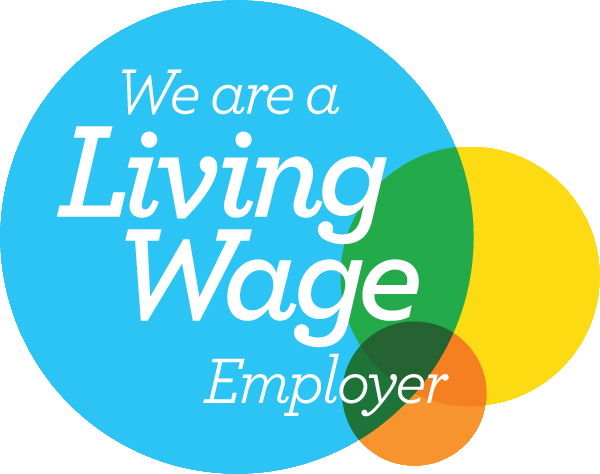February is the month dedicated to the LGBT History, celebrating heroes of this community that fought to change the status quo. As both a company that values inclusion and tech experts, we are very grateful that these pioneers fought through the stigmas and the challenges of the society of their time to contribute to the tech industry.
Below, we have listed 5 LGBT pioneers that changed tech.
LGBT History in Technology
In every field the only thing that should matter is talent. However, many of these pioneers lived and worked in an era when social pressures (and even laws) required them to hide their true orientation or identity, which it makes extremely important to recognise their work through the difficulties. We have listed them chronologically by birth date.
Sofia Kovalevskaya (1850-1891): Russian mathematician
Born in Moscow, Sofia Kovalevskaya was the first major Russian female mathematician, the first woman to work as an editor for a scientific journal, and a contributor to the development of the Cauchy–Kovalevskaya theorem.
Kovalevskaya became the first woman in Europe to earn a doctorate in mathematics. She later secured a position at Stockholm University with the help of Swedish mathematician Gösta Mittag-Leffler, whom she met through his sister, a woman with whom she had an intimate “romantic friendship” that lasted until Kovalevskaya’s death from influenza at the age of 41.
Alan Turing (1912-1954): English computer scientist, mathematician, and cryptanalyst
Generally referred as the “father” of theoretical computing science and artificial intelligence, Alan Turing is arguably the name that most often comes to mind when people think about an influential gay computer science pioneer.
A graduate of Cambridge and Princeton, Turing worked as a cryptanalyst during World War II, playing a key role in the development of a technique to decipher encrypted German messages.
He worked at the National Physical Library in London, where he contributed to the Automatic Computing Engine (ACE) and developed the blueprint for stored-program computers. In his later work, he developed the idea of artificial computer intelligence, including proposing an experiment to test AI: the Turing Test.
Turing’s life had a tragic ending: arrested and prosecuted for “gross indecency” when authorities discovered he was gay, he committed suicide by ingesting cyanide and died at the age of 41.
On 24 December 2013, Queen Elizabeth II signed a pardon for Turing's conviction for "gross indecency", with immediate effect. Turing was also named by Timemagazine as one of the 100 most important people of the 20th century.
Christopher Strachey (1916–1975): British computer scientist
Christopher Strachey was born in Hampstead, England, and his father worked alongside Alan Turing as a cryptographer at Bletchly Park during World War II.
During his studies in mathematics and physics, he suffered a nervous breakdown, which his sister attributed to his struggles to accept his homosexuality.
After an early career as a research physicist and teacher, Strachey developed a program in 1951 that allowed the Pilot Ace computer at the National Physical Laboratory (NPL) and later the Manchester Mark 1 to play a game of draughts (checkers).
He also wrote one of the first computer music programs, which played “Baa Baa Black Sheep”. Strachey is also remembered as one of the developers of Combined Programming Language (CPL), an early precursor to the influential C programming language.
Lynn Conway (b. 1938): American computer scientist
Lynn Conway is a pioneer of microelectronics chip design with an extraordinary life story. She attended both MIT and Columbia University, and in 1964 was recruited by IBM to work on a team building an advanced supercomputer. While at IBM she transitioned from male to female, and was subsequently fired by the company in 1968 after revealing her intention to live as a woman. Conway then began living with a new name and a new identity, and was forced to rebuild her career from scratch.
In 2014 Time magazine named her one of the “21 Transgender People Who Influenced American Culture.”
Mary Ann Horton (b. 1955): American Usenet and Internet pioneer
Mary Ann Horton earned her Ph.D. in computer science from Berkeley in 1981, where she contributed to the development of Berkeley UNIX, which led to the growth of the Usenet in the 1980s. Horton is a transgender woman who, in addition to her contributions to technology, has also made significant contributions to transgender rights in the workplace. In 1997 she asked her then employer Lucent Technologies to include the language “gender identity, characteristics, or expression” in its Equal Opportunity (EO) nondiscrimination policy, which led to Lucent becoming the first company in the United States to add transgender-inclusive language to its EO policy.
LBGTQ+ community in tech today
LGBT people who are involved in tech, and STEM in general, still face higher rates of workplace bullying and discrimination than their cishet counterparts. Luckily, many groups, like Trans Tech Social, Lesbians Who Tech or Out in Tech, have created a safety network for the members of this community to fall back on if needed.
Thanks to many heroes like the ones we listed above, the tech community, and hopefully the rest of the world, are realising that sexual orientation or gender norms have nothing to do with talent. To us, diversity can only be a powerful resource. It makes us a greater company allowing us to see problems from different perspectives and find the best solutions.
Wondering how you could use technology more effectively, or have a specific question to answer?
Drop it in the comments below, or get in touch with the team







